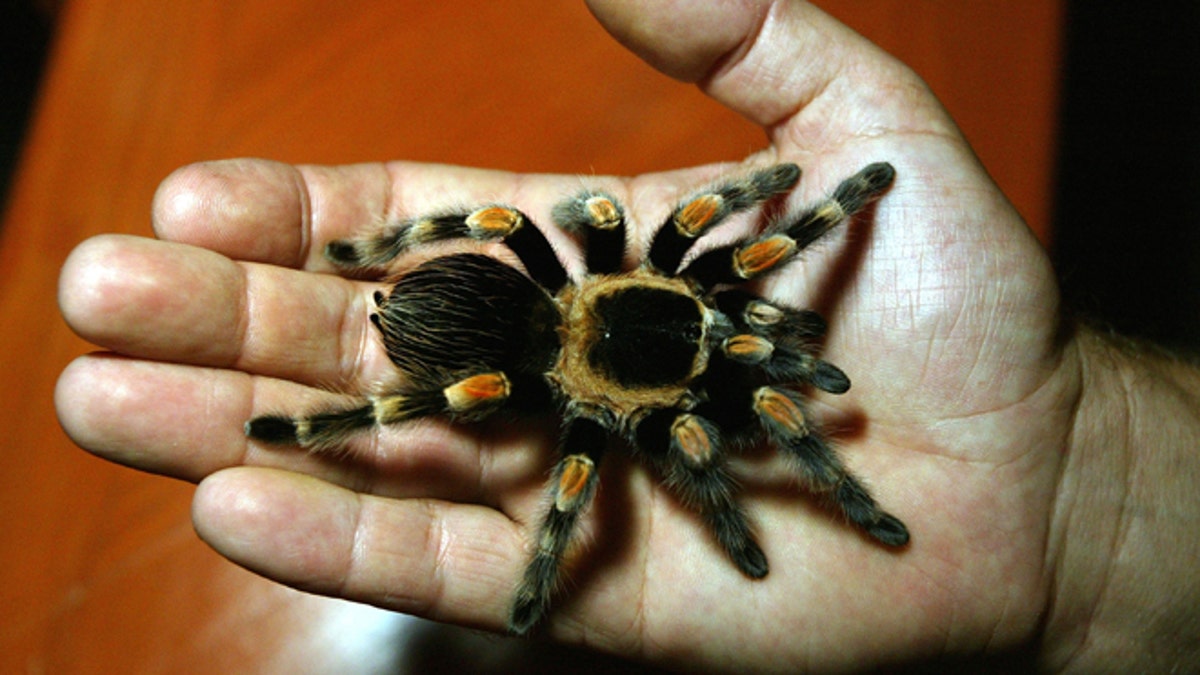
SAN FRANCISCO - JUNE 13: A man holds a Mexican Red-Legged tarantula at the San Francisco Zoo June 13, 2003 in San Francisco. The recent epidemic of Monkeypox in the U.S., which was linked to infected Prairie Dogs, some of which were being used as pets, has led the CDC to increase awareness to the host of health risks people are exposed to when dealing with exotic pets.(Photo by Justin Sullivan/Getty Images) (2003 Getty Images)
They’re the stuff of nightmares: giant, hairy, carnivorous spiders that secrete nasty toxic goo and have to be kept alone because they kill anything that comes near them.
To many people, just the idea of having one of these creatures in your house is enough to give them the heebie-jeebies – especially since they can spawn between 300 and 700 children at once – and yet that is exactly what Nicaragua is hoping to benefit from. The Central American nation hopes to boost its exports and its sagging economy by exporting the fuzzy tarantula to places like China, Europe and United States, where the creepy spiders have become a niche pet.
"It is easier to handle a boa than a spider," said Eduardo Lacayo, owner of Exotic Fauna, a firm that breeds the spiders for export, according to Discovery News. "We have customers who have confirmed they want this kind of species.”
With the approval of the country’s Environment Ministry, Exotic Fauna and other similar ventures have started breeding the arachnids in an effort to bring in some much-needed funds to Nicaragua. The Central American country is currently the second poorest in the Western Hemisphere, behind only Haiti.
“We plan to sell them at a price even higher than that of boas,” which go for up to $8 apiece, Lacayo told AFP. Exotic Fauna is currently in the process of breeding some 7,000 tarantulas in a series of glass beds lined with sawdust.
The godfather of the spider trade in Nicaragua is Ramón Mendieta, owner of an exotic animal farm in the Carazo department, who sells about 10,000 tarantulas a year to customers in the U.S. and Europe. While Mendieta does a brisk trade in tarantulas, he admits that profit margins are low given the high costs of protecting the spiders from parasites while in captivity.
The tarantula business in Nicaragua also faces some stiff competition from its fellow Latin American nations. Chile sells a species of tarantula that is less feisty than its Nicaraguan relatives and Colombia is also getting into the spider export game.
But still, with the love of these beasts continuing across the globe, Nicaragua plans to continue shipping off spine-chilling spiders worldwide.
"There are a lot of people that love to have them at home, some as pets and others because they like danger," said biologist Fabio Buitrago of the Nicaraguan Foundation for Sustainable Development.
